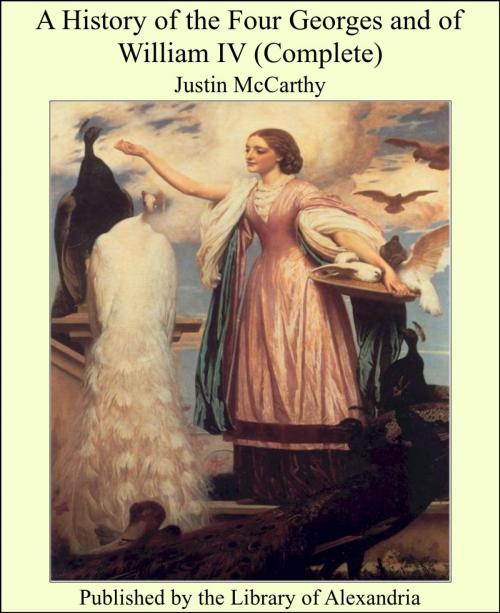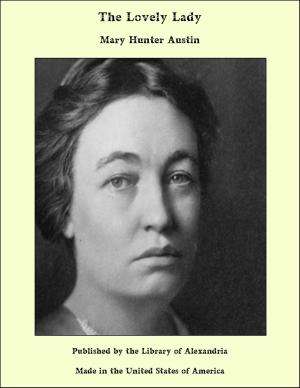A History of the Four Georges and of William IV (Complete)
Nonfiction, Religion & Spirituality, New Age, History, Fiction & Literature| Author: | Justin McCarthy | ISBN: | 9781465541673 |
| Publisher: | Library of Alexandria | Publication: | March 8, 2015 |
| Imprint: | Language: | English |
| Author: | Justin McCarthy |
| ISBN: | 9781465541673 |
| Publisher: | Library of Alexandria |
| Publication: | March 8, 2015 |
| Imprint: | |
| Language: | English |
The Queen is pretty well, Swift wrote to Lord Peterborough on May 18, 1714, "at present, but the least disorder she has puts all in alarm." Swift goes on to tell his correspondent that "when it is over we act as if she were immortal; neither is it possible to persuade people to make any preparations against an evil day." Yet on the condition of Queen Anne's health depended to all appearance the continuance of peace in England. While Anne was sinking down to death, rival claimants were planning to seize the throne; rival statesmen and rival parties were plotting, intriguing, sending emissaries, moving troops, organizing armies, for a great struggle. Queen Anne had reigned for little more than twelve years. She succeeded William the Third on March 8, 1702, and at the time when Swift wrote the words we have quoted, her reign was drawing rapidly to a close. Anne was not a woman of great capacity or of elevated moral tone. She was moral indeed in the narrow and more limited sense which the word has lately come to have among us. She always observed decorum and propriety herself; she always discouraged vice in Others; but she had no idea of political morality or of high {2} political purpose, and she had allowed herself to be made the instrument of one faction or another, according as one old woman or the Other prevailed over her passing mood. While she was governed by the Duchess of Marlborough, the Duke of Marlborough and his party had the ascendant. When Mrs
The Queen is pretty well, Swift wrote to Lord Peterborough on May 18, 1714, "at present, but the least disorder she has puts all in alarm." Swift goes on to tell his correspondent that "when it is over we act as if she were immortal; neither is it possible to persuade people to make any preparations against an evil day." Yet on the condition of Queen Anne's health depended to all appearance the continuance of peace in England. While Anne was sinking down to death, rival claimants were planning to seize the throne; rival statesmen and rival parties were plotting, intriguing, sending emissaries, moving troops, organizing armies, for a great struggle. Queen Anne had reigned for little more than twelve years. She succeeded William the Third on March 8, 1702, and at the time when Swift wrote the words we have quoted, her reign was drawing rapidly to a close. Anne was not a woman of great capacity or of elevated moral tone. She was moral indeed in the narrow and more limited sense which the word has lately come to have among us. She always observed decorum and propriety herself; she always discouraged vice in Others; but she had no idea of political morality or of high {2} political purpose, and she had allowed herself to be made the instrument of one faction or another, according as one old woman or the Other prevailed over her passing mood. While she was governed by the Duchess of Marlborough, the Duke of Marlborough and his party had the ascendant. When Mrs















